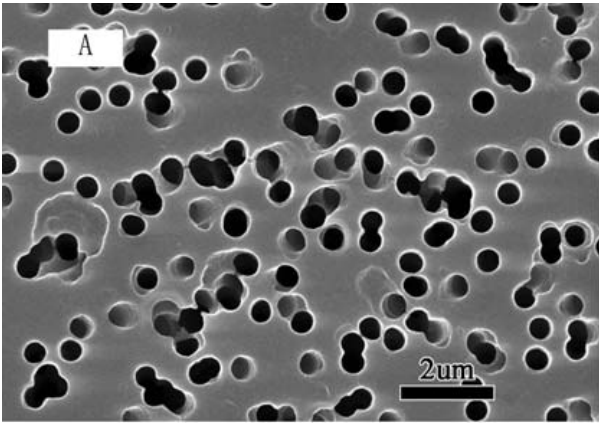
pH-responsive polyethylene terephthalate (PET) track-etched membranes were synthesized by grafting 2-hydroxyethyl-methacrylate (HEMA) on the surface of the membrane via atom transfer radical polymerization. The controllability of grafting polymerization of HEMA on membrane surface is systematically investigated. The pH-responsive characteristics of PET-g-poly(2-hydroxyethyl-methacrylate) (PHEMA) gating membranes with different grafted PHEMA chain lengths are measured by tracking the permeation of water solution with different pH values. The results show that the grafting polymerization is controllable, and the permeation of grafted membranes is affected by the grafted PHEMA chain lengths on the surface of membrane. The results also demonstrate that the grafted PET membranes exhibit reversible pH-response permeation to environmental pH values. Desired pH-responsive membranes are obtained bycontrolling the grafted PHEMA chain lengths via atom transfer radical polymerization method. (C) 2014 Wiley Periodicals, Inc.
